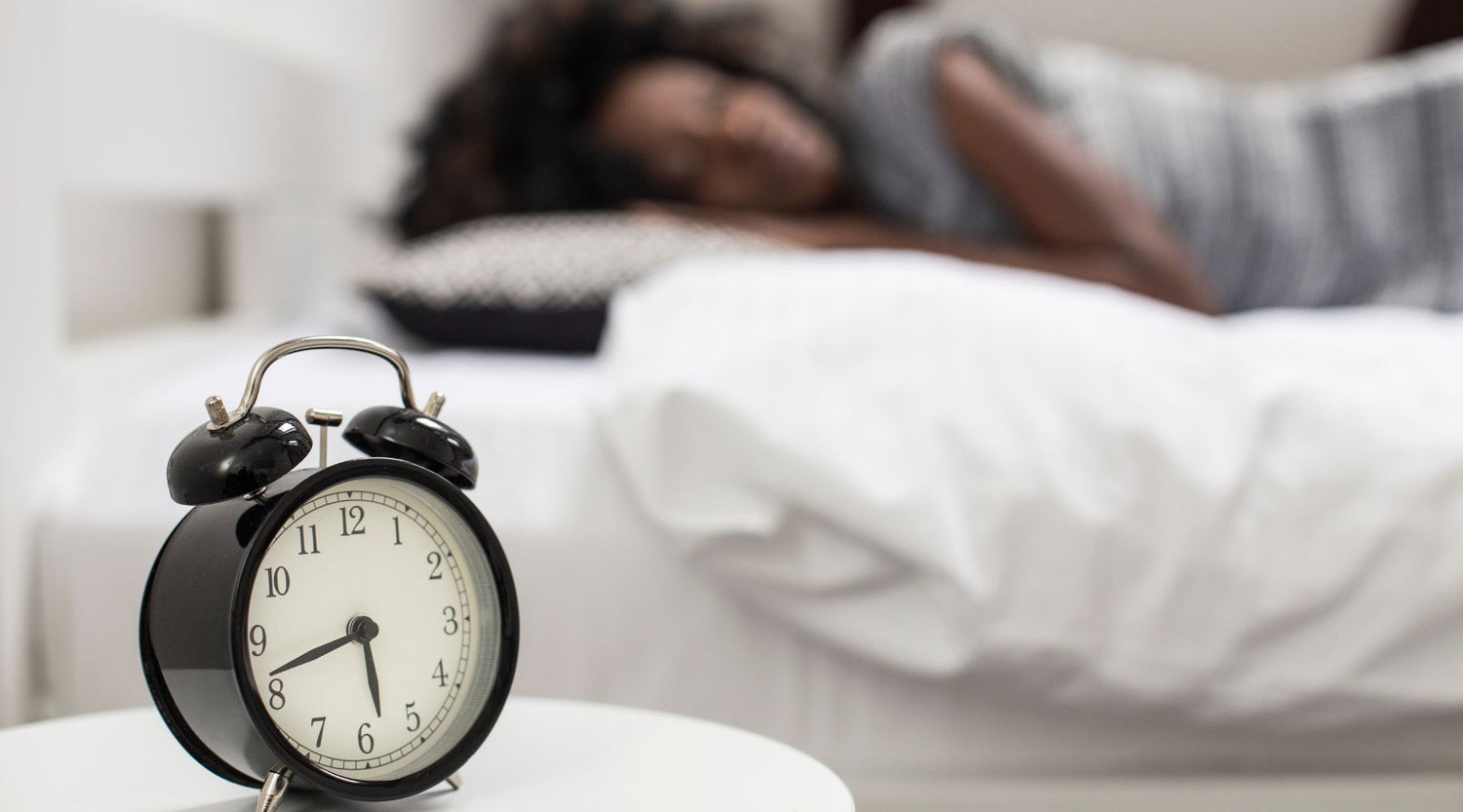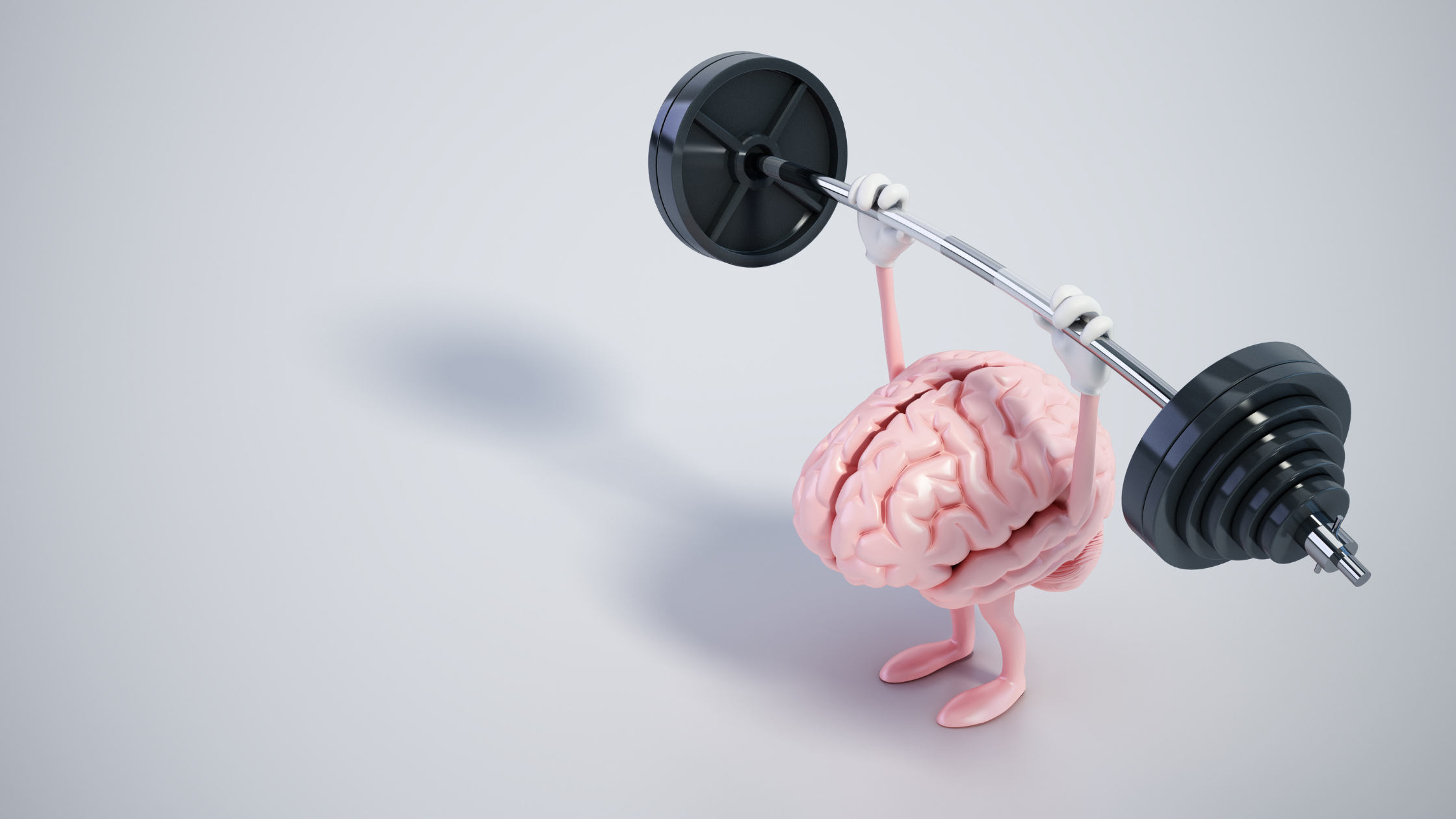In today's fast-paced world, the importance of a restful night's sleep cannot be overstated. Quality sleep, particularly the deep and restorative kind, plays a vital role in our physical rejuvenation, mental acuity, and general health. Here we discuss the scientific underpinnings of sleep and offer actionable advice to help you improve the quality of your slumber. By understanding the intricate processes that occur during sleep and implementing evidence-based techniques, you can unlock the full potential of your nightly rest, leading to improved performance, better health outcomes, enhanced well-being and promotion of longevity!
Understanding the Science of Sleep
The scientific basis of sleep revolves around the body's circadian rhythm, often referred to as our "internal clock." This rhythm is regulated by various factors, of which we will go on to discuss. Sleep itself is not a uniform construct, but rather a complex process consisting of several distinct stages, each playing a vital role in our health. From the moment you fall asleep to the moment you wake up, your body goes through a continuous 'sleep cycle' that determines the quality of your rest.
This sleep cycle [1] typically runs as follows:
- Light sleep (N1 and N2): These initial stages prepare the body for deeper sleep. During N1, you're easily awakened, while N2 involves a slight decrease in body temperature and slowed heart rate.
- Deep sleep (N3): Also known as slow-wave sleep, this stage is crucial for physical restoration. During deep sleep, your body repairs tissues, strengthens the immune system, and consolidates memories. Research has shown that this stage is essential for cognitive function, hormone regulation, and overall health.
- REM (Rapid Eye Movement) sleep: One of the four stages of the sleep cycle, characterized by unique brain activity, rapid eye movements, vivid dreaming, and temporary muscle paralysis. It plays a crucial role in emotional regulation, memory consolidation, and brain development.
Melatonin helps signal to the body that it's time to sleep, making us feel drowsy and lowering our body temperature. The body's production and regulation of sleep/wake related hormones, such as melatonin, follow the circadian rhythm, which is why maintaining a consistent sleep schedule is so important. Therefore understanding these sleep stages can help us appreciate the complexity of sleep and develop strategies to align habits with your body's natural rhythms and hormone production, promoting better sleep quality and overall health.
Strategies for Enhancing Sleep Quality
Create a More Sleep-Friendly Environment
Creating an optimal sleep environment is crucial for quality rest, with the key aspects in your environment being: light, temperature and noise.
1. Light exposure
Light plays a crucial role in regulating the production of melatonin, often referred to as the "sleep hormone," which is essential for our sleep-wake cycle. Melatonin is produced in the brain, with levels rising in the evening as darkness signals to the body that it's time to wind down for sleep. Conversely, exposure to light in the morning prompts a decrease in melatonin production, signalling that it's time to wake up and start the day [2]. Therefore, managing your exposure to light both while asleep and at certain points while you are awake is critical.
Even low levels of light during sleep can have substantial negative effects on sleep quality, particularly on deep sleep. Light exposure, even through closed eyelids, can suppress melatonin production, disrupting the natural sleep-wake cycle and making it more difficult to enter and maintain deep sleep stages. This suppression activates the brain's arousal system, causing more frequent transitions between sleep stages and reducing the total duration of deep sleep throughout the night. Consequently, sleep becomes fragmented, with more frequent awakenings even if not remembered, preventing the brain from completing full sleep cycles essential for restorative functions. Altered sleep architecture shifts the balance of sleep stages, often reducing the proportion of deep sleep which can disrupt critical physiological processes such as physical restoration, memory consolidation, hormonal regulation, and brain detoxification. For example, deep sleep activates the brain's glymphatic system, clearing waste products from the brain, while also triggering peak growth hormone release, essential for cell regeneration and metabolism. By interfering with these processes, light exposure during sleep can have far-reaching consequences on overall health and cognitive function [3].
Pro Tips:
To protect deep sleep and its associated benefits, it's crucial to create a sleep environment that is as dark as possible, using methods such as blackout curtains or eye masks to block out ambient light.
For the same reason, it is also vital to get morning sunlight to signal to your brain that it is time to wake up. When your eyes detect blue light wavelengths from sunlight, it signals your brain’s master clock, the suprachiasmatic nucleus (SCN), to suppress melatonin production, boosting wakefulness and promoting serotonin release—a precursor to melatonin. This process ensures melatonin levels rise naturally in the evening, helping you fall asleep more easily. Regular morning sunlight exposure aligns your internal clock with the day-night cycle, improving sleep quality and duration. Aim for 10–30 minutes of morning sunlight daily to support optimal sleep-wake balance.
2. Artificial light
Artificial light, especially blue light emitted by electronic devices, can significantly disrupt sleep quality when experienced in the evening. Research has consistently shown that exposure to blue light from smartphones, tablets, computers, and other gadgets before bedtime can suppress melatonin production, disrupt the circadian rhythm, and negatively impact sleep quality. A study focusing on school-aged children found that both acute and repeated nocturnal smartphone use shortened total sleep time and increased waking after sleep onset, highlighting the immediate effects of such exposure [4]. A systematic review of research into blue light and sleep emphasized that excessive blue light exposure from electronic devices in the evening can contribute to sleep problems by affecting melatonin secretion in the brain, potentially shifting the entire sleep-wake cycle [5]. This disruption can lead to difficulties in falling asleep and maintaining sleep throughout the night. The impact of blue light exposure is not limited to immediate effects; chronic exposure can lead to long-term disruptions in circadian rhythms, potentially contributing to mood disorders, cognitive impairment, and metabolic disturbances [6].
Pro Tips:
To mitigate these negative impacts, experts recommend limiting blue light exposure in the hours leading up to bedtime, using blue light filters, wearing blue light-blocking glasses, or ideally, avoiding screen time altogether 1-2 hours before sleep. Creating a sleep-friendly environment with dim, warm lighting in the evening can also help promote natural melatonin production and improve overall sleep quality.
3. Temperature
Temperature plays a crucial role in sleep quality, particularly in the depth and continuity of sleep, with even small fluctuations in ambient temperature having substantial effects on sleep architecture. The human body naturally experiences a drop in core temperature as part of the circadian rhythm, which helps initiate and maintain sleep. When the sleeping environment is too warm, it interferes with this natural cooling process, making it harder to fall asleep and stay asleep. Elevated temperatures can reduce the amount of slow-wave sleep (deep sleep) and REM sleep, two critical stages for physical restoration and cognitive function. This disruption can lead to more frequent awakenings and sleep fragmentation, even if not consciously remembered, preventing the completion of full sleep cycles essential for restorative functions. This can impact various physiological processes, including thermoregulation, metabolic rate, and hormone production. For instance, growth hormone secretion, which peaks during deep sleep, may be reduced in warmer conditions, potentially affecting tissue repair and metabolism [7]. Additionally, higher temperatures can increase night sweats and general discomfort, further compromising sleep quality. Conversely, sleeping in a cool environment (around 65°F or 18.3°C) can help, accompanying the body's natural temperature drop therefore leading to more restorative sleep.
Pro Tips:
By understanding the intricate relationship between temperature and sleep physiology, we can optimize our sleep environments for better quality rest. Consider adjusting your room temperature, using cooling mattress pads or taking a warm bath before bed to induce a rapid physiological cool-down effect.
4. Noise
Even during sleep, the auditory system remains active, processing incoming sounds and potentially triggering arousal responses. Sudden or irregular noises can cause micro-awakenings, disrupting the natural progression through sleep stages and reducing time spent in restorative deep and REM sleep. These disturbances activate the sympathetic nervous system, leading to increased heart rate, blood pressure, and cortisol release, all of which contribute to a state of heightened alertness incompatible with quality sleep [8]. Chronic exposure to nighttime noise has been linked to long-term health consequences, including cardiovascular issues and cognitive impairment, due to the cumulative effects of sleep fragmentation and stress responses. Moreover, noise can mask important auditory cues that the brain uses to maintain sleep continuity, further compromising sleep quality.
Pro Tips:
To optimize sleep in noisy environments, consider using white noise machines to create a consistent sound backdrop, invest in soundproofing measures like heavy curtains or acoustic panels, and use high-quality earplugs designed for sleep to reduce the impact of disruptive sounds.
Promote Relaxation
Practicing relaxation techniques can significantly impact sleep quality through various physiological mechanisms. A meta-analysis of 49 studies found that mindfulness-based interventions had a significant positive effect on sleep quality [9].
Deep breathing exercises, for instance, activate the parasympathetic nervous system, reducing heart rate and blood pressure, which are conducive to sleep onset [10]. As another example, progressive muscle relaxation has been shown to decrease cortisol levels (a hormone often associated with stress) and muscle tension, promoting a state of physical relaxation that facilitates sleep. Mindfulness meditation can reduce activity in the default mode network of the brain, associated with mind-wandering and rumination, which often interfere with sleep.
Regular physical activity influences sleep through multiple pathways. Exercise increases adenosine levels in the brain, a neurotransmitter that promotes sleep pressure. It also helps regulate the circadian rhythm by influencing core body temperature fluctuations. For instance, studies have found that consistent aerobic exercise training leads to significant increases in total sleep duration, sleep efficiency, and sleep onset latency [11,12]. However, it is important to consider the timing of exercise, due to this effect on core body temperature and cortisol levels. Vigorous exercise elevates both, potentially interfering with sleep if performed too close to bedtime. Research suggests that finishing intense workouts at least 3 hours before sleep allows sufficient time for these physiological parameters to return to baseline levels to optimise sleep quality.
Eat a Balanced Diet
Certain nutrients found in diet can either significantly improve your nightly rest or significantly disrupt it. Therefore, when seeking to improve the duration and quality of your sleep it is important to be conscious of which is which.
What to Avoid:
While it may feel like you get to sleep easily after a couple of pints of beer or glasses of wine, alcohol's impact on sleep is far more complex than it appears. Although it can help you fall asleep faster due to its sedative effects, alcohol significantly disrupts your sleep architecture, leading to significantly poor overall sleep quality. It suppresses crucial REM sleep in the first half of the night, which is essential for cognitive functions and emotional regulation. As the night progresses and alcohol is metabolized, sleep becomes more fragmented, resulting in frequent awakenings and lighter, less restorative sleep. This disruption can even lead to a "rebound effect," causing excessive REM sleep later in the night, often accompanied by vivid dreams or nightmares [13].
Similarly, indulging in spicy or fatty foods close bedtime can also wreak havoc on your sleep. Spicy foods can cause indigestion and raise your body temperature, making it harder to fall asleep. On the other hand fatty foods, take longer to digest and can lead to discomfort and acid reflux when lying down. Both of these digestive issues can cause frequent awakenings throughout the night, further fragmenting your sleep, with research showing people who eat high-fat diets tend to experience less restorative slow-wave sleep [14]. To optimize your sleep quality, it's best to avoid alcohol, spicy, and fatty foods in the hours leading up to bedtime, allowing your body to enter a more natural and restorative sleep state.
What to Monitor:
One of the key players affecting sleep quality in diet, as I'm sure you know, is caffeine. Caffeine's impact on sleep is complex and varies among individuals. While it effectively masks sleepiness, it only creates a façade of awakeness and does not actually reduce the physiological need for sleep. Instead, caffeine works by blocking adenosine receptors in the brain, temporarily suppressing feelings of fatigue. However, this effect is transient, and once the influence of caffeine wares off, the accumulated adenosine can lead to a sudden onset of sleepiness, often experienced as a "caffeine crash" in the early afternoon [15]. Therefore, timing of caffeine consumption is crucial for maintaining sleep quality. Interestingly, some individuals do report being able to sleep well despite consuming caffeine later in the day, which may be attributed to factors such as tolerance development or genetic variations in caffeine metabolism. However, it's important to note that even in these cases, caffeine can still negatively impact sleep architecture, particularly by reducing REM sleep duration.
Pro Tips:
While individual responses to caffeine can vary, understanding its potential effects on sleep can help in making informed decisions about consumption patterns to optimise your personal sleep quality. Here are some general tips we would recommend:
Limit your daily caffeine intake to no more than 400mg (about 3-4 cups of coffee). Avoid consuming caffeine at least 6-8 hours before bedtime to minimise sleep disruption. For most people this means no caffeine after 2-3 PM, but if you're particularly sensitive to caffeine, consider cutting it off even earlier, around 11 AM or noon. Gradually reduce your intake throughout the day, starting with the most caffeinated beverage in the morning. Be aware of hidden sources of caffeine, such as chocolate (sadly), tea, and some medications. Additionally, If you're experiencing sleep issues, try tracking your caffeine consumption and its effects on your sleep quality.
What to Increase:
Certain nutrients have been show to support better sleep quality. For instance Magnesium, found in leafy greens, nuts, and whole grains, has been linked to better sleep quality, including reduced daytime sleepiness and increased sleep duration [16]. A systematic review published in BMC Complementary Medicine and Therapies revealed a significant association between magnesium status and overall sleep quality. Another example is Melatonin, naturally produced in the body but also present in foods like tart cherries, nuts, and milk can be effective in treating sleep disorders. A meta-analysis found that melatonin supplementation had positive effects on sleep quality as assessed by the Pittsburgh Sleep Quality Index (PSQI) in adults [17].
Spermidine and Sleep
Spermidine, a polyamine found in various foods such as wheat germ, soybeans, and aged cheese, has gained attention for its potential sleep-enhancing properties. Research suggests that spermidine may contribute to improved sleep. This is thought to occur primarily due to enhanced autophagy as spermidine has been shown to be a potent inducer of autophagy, a cellular cleaning process that may help regulate sleep-wake cycles. In humans, a population based study reported that participants who consumed spermidine-rich foods experienced better sleep quality and reduced daytime fatigue [18]. While more research is needed to fully understand the effects of spermidine on human sleep patterns, these preliminary findings suggest that incorporating spermidine-rich foods into one's diet may be a promising natural approach to supporting healthy sleep. Additionally, many customers have reported positive experiences with Primeadine, highlighting significant improvements in their sleep quality as tracked by their wearable devices. Users have noted enhanced sleep duration and reduced disturbances during the night, demonstrating the potential effectiveness of Primeadine supplementation in promoting restful sleep. You can find out more about the benefits of spermidine for this sleep in this blog post.
Address Underlying Sleep Conditions
Sleep disorders significantly impact sleep architecture, overall health and quality of life. Below are some examples of common sleep disorders:
Insomnia: characterised by difficulties initiating or maintaining sleep, affects approximately 10-15% of the adult population.
Sleep apnoea: affects up to 38% of adults, causes repeated upper airway obstruction during sleep, leading to intermittent hypoxia and sleep fragmentation. This condition is linked to increased cardiovascular risk and cognitive impairment.
Restless leg syndrome: Affects 5-10% of adults, is associated with dopamine dysfunction and iron deficiency, causing an irresistible urge to move the legs, often disrupting sleep onset.
Narcolepsy: A neurological disorder affecting about 1 in 2,000 people, is characterised by excessive daytime sleepiness and sudden loss of muscle tone (cataplexy), stemming from a deficiency in hypocretin/orexin neurotransmission.
Early diagnosis and treatment of these disorders are crucial, as they can significantly improve sleep quality and associated health outcomes.
Advancements in Sleep Technology
There have been a number of advancements in sleep technology, offering promising solutions for improving sleep disorders. A study on closed-loop acoustic stimulation, published in the Journal of Sleep Research, demonstrated significant improvements in slow-wave activity during sleep [19]. This technology uses algorithms to detect slow-wave oscillations in real-time and deliver precisely timed auditory stimuli to enhance these waves. The study reported a 26% increase in slow-wave activity and associated improvements in memory consolidation. Furthermore, machine learning and deep learning algorithms have shown remarkable accuracy in detecting sleep apnoea from single-lead ECG recordings. A recent study in the IEEE Journal of Biomedical and Health Informatics reported a sensitivity of 92.5% and specificity of 91.8% in detecting sleep apnoea events using these advanced algorithms, potentially revolutionising the accessibility and efficiency of sleep disorder diagnostics [20].
Conclusion
Achieving deep, restorative sleep is a multifaceted process that involves understanding the science of sleep, optimizing your environment, maintaining healthy habits, and potentially incorporating supplements like spermidine. By implementing these evidence-based strategies and staying informed about the latest sleep research, you can take significant steps towards improving your sleep quality and overall well-being. Remember, good sleep is not a luxury—it's a necessity for optimal health and performance in all aspects of life. By prioritising your sleep and implementing these strategies, you're investing in your health, productivity, and quality of life.
References
[1] Patel AK, Reddy V, Shumway KR, et al. Physiology, Sleep Stages. [Updated 2024 Jan 26]. In: StatPearls [Internet]. Treasure Island (FL): StatPearls Publishing; 2024 Jan-. Available from: https://www.ncbi.nlm.nih.gov/books/NBK526132/
[2] Brown GM. Light, melatonin and the sleep-wake cycle. J Psychiatry Neurosci. 1994 Nov;19(5):345-53. PMID: 7803368; PMCID: PMC1188623
[3] Eugene AR, Masiak J. The Neuroprotective Aspects of Sleep. MEDtube Sci. 2015 Mar;3(1):35-40. PMID: 26594659; PMCID: PMC4651462
[4] Abid R, Ammar A, Maaloul R, Boudaya M, Souissi N, Hammouda O. Nocturnal Smartphone Use Affects Sleep Quality and Cognitive and Physical Performance in Tunisian School-Age Children. Eur J Investig Health Psychol Educ. 2024 Mar 28;14(4):856-869. doi: 10.3390/ejihpe14040055
[5] Silvani MI, Werder R, Perret C. The influence of blue light on sleep, performance and wellbeing in young adults: A systematic review. Front Physiol. 2022 Aug 16;13:943108. doi: 10.3389/fphys.2022.943108
[6] Potter GD, Skene DJ, Arendt J, Cade JE, Grant PJ, Hardie LJ. Circadian Rhythm and Sleep Disruption: Causes, Metabolic Consequences, and Countermeasures. Endocr Rev. 2016 Dec;37(6):584-608. doi: 10.1210/er.2016-1083. Epub 2016 Oct 20. PMID: 27763782; PMCID: PMC5142605.
[7] Szymusiak R. Body temperature and sleep. Handb Clin Neurol. 2018;156:341-351. doi: 10.1016/B978-0-444-63912-7.00020-5. PMID: 30454599
[8] Smith MG, Cordoza M, Basner M. Environmental Noise and Effects on Sleep: An Update to the WHO Systematic Review and Meta-Analysis. Environ Health Perspect. 2022 Jul;130(7):76001. doi: 10.1289/EHP10197. Epub 2022 Jul 11. PMID: 35857401; PMCID: PMC9272916
[9] Zhang D, Lee EKP, Mak ECW, Ho CY, Wong SYS. Mindfulness-based interventions: an overall review. Br Med Bull. 2021 Jun 10;138(1):41-57. doi: 10.1093/bmb/ldab005. PMID: 33884400; PMCID: PMC8083197
[10] Magnon, V., Dutheil, F. & Vallet, G.T. Benefits from one session of deep and slow breathing on vagal tone and anxiety in young and older adults. Sci Rep 11, 19267 (2021). https://doi.org/10.1038/s41598-021-98736-9
[11] Park I, Díaz J, Matsumoto S, Iwayama K, Nabekura Y, Ogata H, Kayaba M, Aoyagi A, Yajima K, Satoh M, Tokuyama K, Vogt KE. Exercise improves the quality of slow-wave sleep by increasing slow-wave stability. Sci Rep. 2021 Feb 24;11(1):4410. doi: 10.1038/s41598-021-83817-6. PMID: 33627708; PMCID: PMC7904822
[12] Ezati, M., Keshavarz, M., Barandouzi, Z.A. et al. The effect of regular aerobic exercise on sleep quality and fatigue among female student dormitory residents. BMC Sports Sci Med Rehabil 12, 44 (2020). https://doi.org/10.1186/s13102-020-00190-z
[13] Park SY, Oh MK, Lee BS, Kim HG, Lee WJ, Lee JH, Lim JT, Kim JY. The Effects of Alcohol on Quality of Sleep. Korean J Fam Med. 2015 Nov;36(6):294-9. doi: 10.4082/kjfm.2015.36.6.294. Epub 2015 Nov 20. PMID: 26634095; PMCID: PMC4666864
[14] Alruwaili, N.W., Alqahtani, N., Alanazi, M.H. et al. The effect of nutrition and physical activity on sleep quality among adults: a scoping review. Sleep Science Practice 7, 8 (2023). https://doi.org/10.1186/s41606-023-00090-4
[15] Gardiner C, Weakley J, Burke LM, Roach GD, Sargent C, Maniar N, Townshend A, Halson SL. The effect of caffeine on subsequent sleep: A systematic review and meta-analysis. Sleep Med Rev. 2023 Jun;69:101764. doi: 10.1016/j.smrv.2023.101764. Epub 2023 Feb 6. PMID: 36870101
[16] Buscemi N, Vandermeer B, Pandya R, et al. Melatonin for Treatment of Sleep Disorders: Summary. 2004 Nov. In: AHRQ Evidence Report Summaries. Rockville (MD): Agency for Healthcare Research and Quality (US); 1998-2005. 108. Available from: https://www.ncbi.nlm.nih.gov/books/NBK11941/
[17] Fatemeh G, Sajjad M, Niloufar R, Neda S, Leila S, Khadijeh M. Effect of melatonin supplementation on sleep quality: a systematic review and meta-analysis of randomized controlled trials. J Neurol. 2022 Jan;269(1):205-216. doi: 10.1007/s00415-020-10381-w. Epub 2021 Jan 8. PMID: 33417003
[18] Wortha SM, Schulz J, Hanna J, Schwarz C, Stubbe B, Frenzel S, Bülow R, Friedrich N, Nauck M, Völzke H, Ewert R, Vogelgesang A, Grabe HJ, Ladenbauer J, Flöel A. Association of spermidine blood levels with microstructure of sleep-implications from a population-based study. Geroscience. 2024 Feb;46(1):1319-1330. doi: 10.1007/s11357-023-00886-3. Epub 2023 Aug 7. PMID: 37548882; PMCID: PMC10828152
[19] Henin S, Borges H, Shankar A, Sarac C, Melloni L, Friedman D, Flinker A, Parra LC, Buzsaki G, Devinsky O, Liu A. Closed-Loop Acoustic Stimulation Enhances Sleep Oscillations But Not Memory Performance. eNeuro. 2019 Nov 5;6(6):ENEURO.0306-19.2019. doi: 10.1523/ENEURO.0306-19.2019. PMID: 31604814; PMCID: PMC6831893
[20] Ramachandran A, Karuppiah A. A Survey on Recent Advances in Machine Learning Based Sleep Apnea Detection Systems. Healthcare (Basel). 2021 Jul 20;9(7):914. doi: 10.3390/healthcare9070914. PMID: 34356293; PMCID: PMC8306425





Leave a comment
All comments are moderated before being published.
This site is protected by hCaptcha and the hCaptcha Privacy Policy and Terms of Service apply.